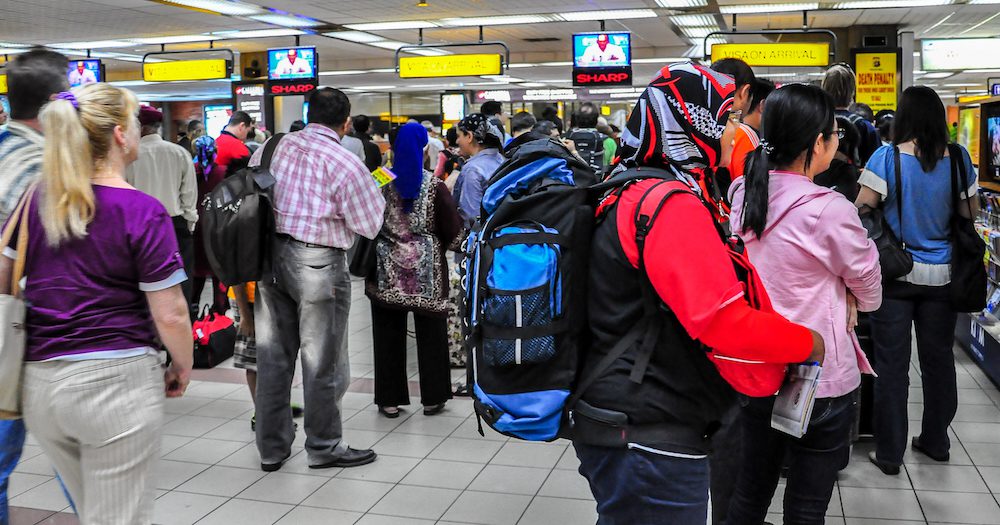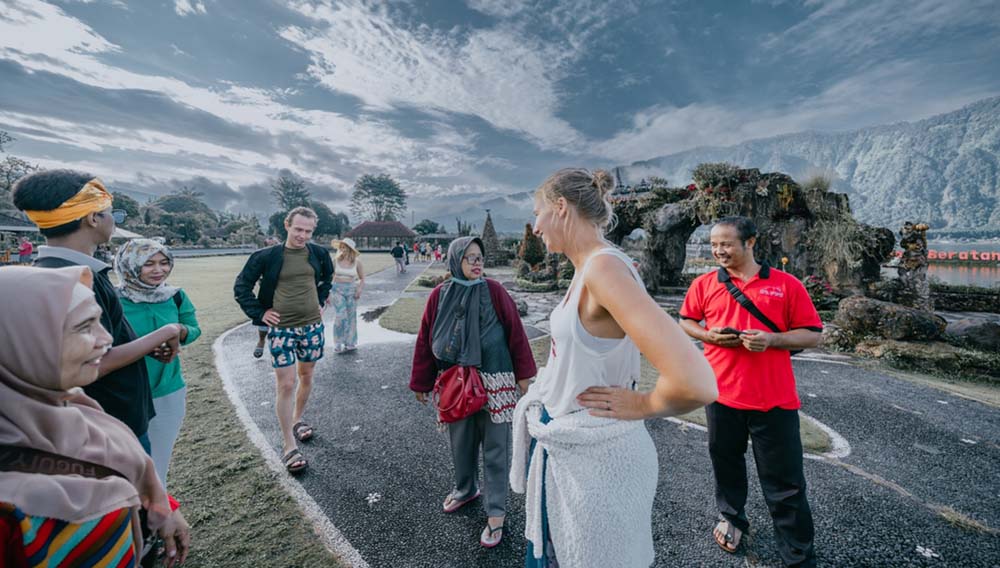Most Australian travellers are not paying a new tourist levy that was introduced last month in Bali. At around $15 (150,000 Indonesian rupiah), the new levy was created to help manage the high number of visitors to the Indonesian island and support its cultural and environmental efforts through initiatives like beach clean-ups. It aims to generate over $80 million a year for the Bali Provincial Government.
But according to the ABC, during the first month, three in five (60 per cent) visitors didn’t pay up. It doesn’t help that many travellers were unsure of how to actually pay for the levy, with staff at Bali’s Denpasar Airport not currently collecting it.
“I knew about the tourist tax, but nobody asked us to pay it – $15 is not much and if it goes to good use, it’s fine to pay,” Rachel Fisher, a frequent Bali visitor, told the broadcaster.
Damien Tout from Melbourne paid the tax online but wasn’t asked for proof at the airport.
“It could be another $50, we wouldn’t care. We’d still come to Bali,” he said.

Despite this, on the first day of random checks at popular tourist spot Uluwatu temple, some travellers were left upset by the unexpected fee, while others were unaware of it.
The ABC noticed tourists were also having trouble using a payment app to pay the fee, with many showing the tourist police their visa-on-arrival receipt, not knowing about the extra fee.
The new tax follows the introduction of a “dos and don’ts” list in Bali last year, reminding visitors to respect the island’s culture.
The initiative was prompted by incidents like an influencer’s disrespectful behaviour at a sacred site and an Australian man stealing medication.
Another Aussie was filmed arguing with a local police officer after they stopped her for not wearing a helmet whilst riding her motorbike, while two other Australians ended up in hospital after a fight on the streets of Kuta. The list goes on.

“[For bad behaviour] we have the list on what tourists can do and what they cannot do in Bali,” the Bali tourism office’s head of promotions I Ketut Yadnya said.
“But the levy is different. We want our tourism to be sustainable, and to sustain it, we need to conserve the culture.
“So for that, we need, of course, some money.”
Concerns as tourism comes back
Tourism in Bali has been recovering well post-pandemic, with 5.25 million foreign visitors arriving in 2023 – not far off the 6 million who visited in 2019.
But while officials welcome the tourism revenue, locals are concerned about increased traffic and beach pollution, among other things.
“Tourists of course [increase] rubbish, but a clean destination is part of what draws them to Bali in the first place,” said Wayan Puspa Negara, a politician who volunteers with a beach clean-up group.
“So the more rubbish that washes up on the beaches means our destination is less appealing.”

Despite initial challenges, tourism police are being lenient towards visitors, facilitating instant payments and allowing delayed payments.
“There’s no fine if you don’t pay, and tourists can still leave Bali at the airport, there’s no problem,” Yadnya said.
“We just need their awareness when they come to Bali, they have to know that Bali needs something to protect their tourism.”
However, some local business owners worry the tax will deter visitors, the ABC reported.
Hamid Isnaini, a Kuta vendor, believes the additional fee might stop tourism from returning to pre-pandemic levels.
“They should let people come to Bali for free,” he said.
“We should be like Thailand, where tourists can enter without paying a fee.”



